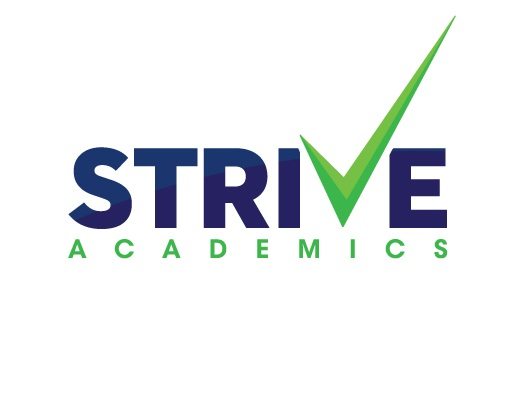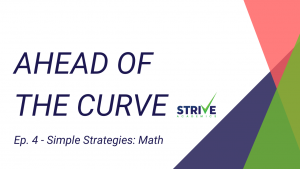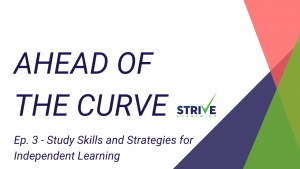How To Start The School Year Right
A new school year is starting. There’s much to learn and many new decisions to make. You’re figuring out new class schedules, meeting new teachers, planning for upcoming events, and more. Of course, a big part of your plans likely involves figuring out ways to stay on top of schoolwork and get ahead in class. At least, that’s what I hope you’re planning.
When students think about studying and getting good grades, they might imagine spending hours each day studying, effectively ruining their social life, but it doesn’t have to be that way. You can get ahead by doing a few simple things and forming effective habits that you do consistently.
Get feedback
At the beginning of the year (and on an ongoing basis), it’s useful to get as much feedback as you can. Talk to upperclassmen and professors before your classes start. Get an idea from the other students about what the class is like. This will help you understand the workload, the professor’s temperament, and more. Don’t be afraid to get in touch with your teacher, either. Ask them about what topics will be covered in the course. Ask any other questions you have and if you should be aware of anything. If you have a choice over which classes you take, this might inform you that you might want to take the class with another teacher if possible. At the very least, you won’t be flying in blind.
If you’re a parent trying to get your bearings on classes for your child, ask other parents about the class and teachers. Ask the same questions as above and any others about the concerns you have. You might also find talking to a school counselor or administrator informative.
During the year, make sure to keep communicating with your teacher. Ask questions, either during class or afterwards. If you can get your teacher’s email, email them. If your teacher has office hours, attend them every now and then. Ask if your teacher can go over a few concepts with you after class or after school. They want to see you succeed too.
Plan ahead
If your class has a syllabus, use that as a guideline for planning your schedule. Many syllabi will have the dates (or approximate dates) of important assignments and class topics. Whether it’s a physical planner or a productivity app like Google Calendar, get something to help you keep track of your schedule. Take all of the important dates from your class and add them in. Schedule study times and homework time. If you need to, set reminders. That’s not where the planning stops, though. Make sure to also plan for personal events too. Planning on hanging out with friends? Put it on your calendar. Want to go to a concert? Put it in. Having these dates at hand makes it easier for you to keep track of the things that matter.
Get organized
Get organized. Find some sort of system that works for you. In addition to getting a planner, find other ways to keep track of important things more effectively. Work on your note-taking skills. Get a binder with tabs for each different subject or different binders altogether for each subject. Have a designated, separate space for your homework, projects, planner, notes, and so on.
Make sure to organize your study spaces too. If you’re studying at home, organize the room to remove distractions. Put your phone on airplane mode, do not disturb mode, or turn your notifications off. Better yet, just turn off your phone or don’t bring it with you while studying if you can to avoid the temptation of browsing through apps and web pages. For some people, listening to music can help with focus. Use a service like focus@will or Noisli for ambient music. A quick Youtube search may yield great results as well. If you don’t plan on studying at home, make sure to find a few places that enable you to concentrate well. A classic study spot is your local or school library. Libraries will often have quiet spaces or study rooms where you will be able to concentrate easily. Coffee shops tend to be another student favorite, but keep in mind that you’re there to study. If you’re spending a significant amount of time listening to the music or people watching, you might want to find another study space.
Read more: 5 Tech Tools To Take Your Studying To The Next Level
Be consistent
Students tend to dread this step the most even though it’s the one that will save you the most heartache. Study consistently. Many students have a habit of studying only before a test or quiz. This works well enough when the material is relatively easy, but it’s not an effective way of studying. The problem with studying like this is that you will spend hours in one night (or maybe a few) going over so much material and will barely be able to recall any of it. Because you remember less this way, it means that you will have to spend even longer studying to get the material down, and won’t have much time for practicing. If you don’t understand the material, you won’t have time to ask questions.
Instead, study in small chunks and do it consistently. Get in the habit of spending 15-30 minutes per day reviewing your notes for each class. Don’t only review the most recent stuff. Many subjects tend to build on previous material, so make sure to review your older notes as well.
Read more: Tips for Overcoming Procrastination
Expect Cumulative Tests
Continuing our conversation about consistent studying, this tip especially applies to middle school students and beyond. As you get further into your studies, teachers will expect more and more from you. One of the expectations will be that you study consistently and continue to review the concepts previously mentioned in your classes – not just what the teacher is currently covering. Quizzes tend to be shorter and cover the material only in the particular chapter or section you’re reviewing in class, but there’s no guarantee your teacher will structure it that way. Sometimes they cover multiple sections too, or there might be bonus questions about something you previously covered. In that case, it’s an easy way to get extra points to keep your grades up.
Tests will cover the entire unit your class has been working on for the past few weeks/months (unless your teacher says otherwise). As mentioned above, studying in big chunks doesn’t work as well, so it makes it difficult to review everything for a test or final if you’re already struggling. Keep in mind there’s no rule that you can only ask teachers about the material you’re currently reviewing in class. If there’s something you don’t understand from a previous section, stop by your teacher’s room before/after school or during office hours to get some clarification. If your class has a syllabus, that’s even more helpful because it will give you an idea of the important concepts you should have covered in the past and will be working towards in the future.
Read more: 7 Essential Tips To Help You Prepare For Your Next Test
Have fun!
School doesn’t have to be all work. There are many clubs, sports, and other after school activities, so get involved! You’ll meet new people and gain new skills and experiences along the way. Follow what interests you, or try something new!
Think about graduation
If you’re entering high school or college, this is especially important. It may seem odd to start thinking about something that might be years away for you, but it’s also important for you to understand that all your actions while in school count from day one. Your first grades will affect your eventual GPA. The activities you participate in will help you stand out to colleges or future employers in the future.
If you’re in high school, start getting familiar with the ACT and SAT. Figure out what’s covered on each of the tests and which one you’d like to take. Ask your teachers, counselors, and school administrators about what activities and programs are offered at your school and how you can get involved. Start looking at colleges and narrowing down what kind of majors you might have an interest in. The more perspective you have on where you’d like to end up, the easier it will be to work towards that goal and ensure you get into the programs of your dreams.
If you’re in college, start narrowing down what majors appeal to you most. Ask your teachers and career counselors about what programs (internships, dual degrees, study abroad, work study, etc) are offered and what previous students have gone on to do from a particular major/department. Colleges offer all sorts of unique programs that may range from partnering with local employers for experience in a variety of majors to creating your own degree. If you have an idea of what kind of career you would like to have, make a list of the key skills you will need to develop to do the job and stand out to a potential employer. Then seek out programs and projects that will help you develop in those areas. If you can’t find one, there’s nothing stopping you from creating it! Employers like initiative; either figure out what kind of project you’d like to do/create or ask department heads, administrators, or counselors what you can do to get it started at the school.
Read more: Things to Consider When Choosing A College
Read more: Things to Consider When Choosing Your College Major
The important thing is not to get overwhelmed. This may seem like a lot, but it’s important to keep in mind that you can make a lot of progress by doing a little at a time. Just take the first step. Many people get distracted by the big goals and assume they have to do monumental things to achieve success. You don’t. The greatest structures are built by moving a few bricks at a time. If you do a little bit and do it often, you can achieve amazing things.
View our resources
Strive Resources | TpT | Made By Teachers | Classful | Etsy
 Ralston is the Founder and CEO and owner of Strive Academics. Ralston is a lifelong learner and began tutoring in 2011 to share his love of learning with others and help students achieve their academic goals. He began Strive Academics with a focus on giving students and families a more comprehensive set of tools and guidance to help them reach their academic goals. He is always looking for new ways to help students with their challenges and loves helping them succeed and achieve new heights.
Ralston is the Founder and CEO and owner of Strive Academics. Ralston is a lifelong learner and began tutoring in 2011 to share his love of learning with others and help students achieve their academic goals. He began Strive Academics with a focus on giving students and families a more comprehensive set of tools and guidance to help them reach their academic goals. He is always looking for new ways to help students with their challenges and loves helping them succeed and achieve new heights.
Tag:Advice, College, Exams, Finals, Goals, High School, Productivity, Study Skills, Study Tips, Studying, Time Management, Tips






